By: Jessica Harris
This blog post is the fourth and final in a Youth Performing Arts Series by teens involved in the performing arts. For more posts, please visit our blog.
Highlights:
- Empowered Players (EP) is a Fluvanna-based non-profit in VA designed to make a difference in the community through the arts. Their mission is to uplift the human spirit through access to quality arts experiences, youth empowerment, and community service through free & accessible K-12 theatre education and programming.
- For the past few months, the Youth Performing Arts Series has highlighted youth involved with EP sharing more about their experiences and perspectives engaging in the performing arts.
- In this fourth and final blog post, Jessica Harris, Founder and Artistic Director of EP, shares more tips and strategies for running a rural youth performing arts program, and about how applied development research is embedded into that work.
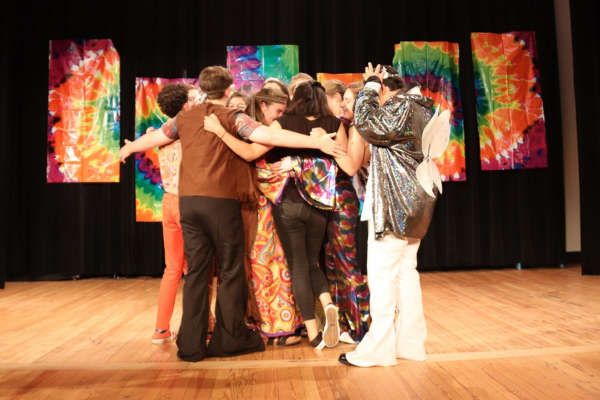
“The show must go on!” Many of us are probably familiar with this age-old adage. It’s designed to remind us of the importance of perseverance, determination, and the need for the curtain to rise on a performance no matter the obstacles.
But how does this phrase apply in communities where systems, structures, and ecosystems are designed such that the show – both literally and figuratively – often cannot go on? This is the reality for many rural counties across the country, and my experience growing up where access to afterschool programs – particularly those in the dramatic arts – was few and far between.
This access gap is felt by many students and families where programs are either too expensive, far away, or inaccessible due to the ability level needed. According to a report by Afterschool Alliance, roughly 4.5 million rural students would be enrolled in an afterschool program if afforded the opportunity; with the majority of parents citing cost and limited access as main barriers to entry.
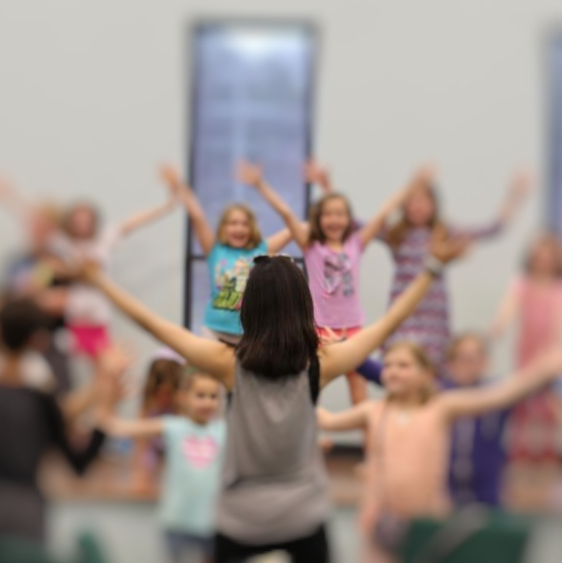
In efforts to provide students with access to arts while closing the opportunity gap, I founded Fluvanna-based Empowered Players (EP) in 2016. The 501(c)3 organization fosters accessible theatre experiences for students who might otherwise lack access to the arts. Our mission is to uplift the human spirit through access to quality arts experiences, youth empowerment, and community service.
Photo source: EP, Empowered Players Students Rehearse Peter Pan Jr., Spring 2018.
The Power of Theatre
Arts programs are often life changing for students. As we’ve heard from our EP Teen Arts Board (TAB) members in this Youth Performing Arts Series, theatre offers students a variety of skills and benefits aside from the warmth of the spotlight. Here’s some of what our students said that affirmed the findings of researchers and experts from the field:
Social and Emotional Learning (SEL) & Positive Youth Development
| Youth Voices | What Experts Say |
| Maya shared that, “Without theatre I would be much less assertive and would probably care more about what people think. In theatre you regularly embarrass yourself and do ridiculous things. By doing that in this safe place, it’s easier to do in public.” | Researcher Jane Dewey writes: “Theatre is an exploration of human emotion, human behavior and human action…. the process of drama is used not for production, but for exploration.” Students explore roles onstage; examine characters’ thoughts and feelings; try out new skills in improvisation games; and thus, fine-tune their SEL skills. |
Friendships & Confidence
| Youth Voices | What Experts Say |
| Gloria said, “Throughout the year my confidence has gone up. For example, I can make friends easier now, and it is easier for me to talk to people that I don’t really know. I have also noticed that I have become more confident in speaking in class in front of classmates and teachers, and that I can express my thoughts and opinions more freely and without worrying too much about what they think.” | Sandra Ruppert found that theatre increases students’ “self-confidence, self-control, conflict resolution, collaboration, empathy, and social tolerance” (p. 14) – all of which are essential for increased friendships and confidence. |
Creativity, Problem-Solving, & Innovation
| Youth Voices | What Experts Say |
| Anna and Kessler believe that theatre “can improve public speaking ability, increase creative thinking skills, and includes people from many different backgrounds and walks of life through the diverse roles available.” | In a report on 21st Century Skills, Colleen Dean & colleagues found that theatre and arts programs teach essential skills such as outside-the-box thinking, collaborative skills, and innovation through elements that are required to put on a show. |
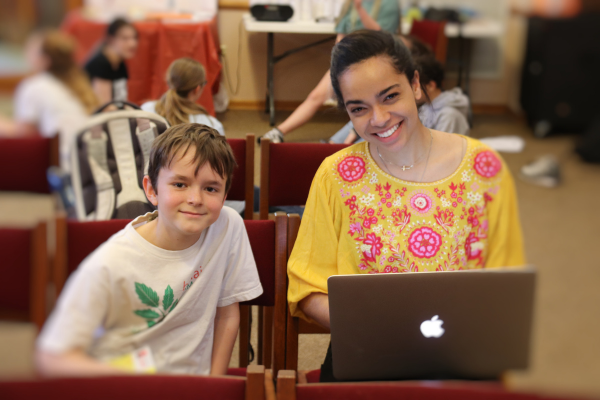
Tips & Advice for Adults
While EP continues to adapt to our community’s needs and interests, there are a few key lessons learned that may prove useful for others who hope to engage in this type of meaningful work. Whether you are a teacher, a community organizer, a parent, or other person invested in positive youth development, my hope is that these tips and strategies will help you support youth in the performing arts.
- Focus on the Process: Our mantra is process is the product. Just as no theatre will have a good performance if the creative process was lackluster, the same holds true for organizations working with students. Educators should focus on offering a robust, SEL-centered experience rather than focus on “just putting on a show.” (The Educational Theatre Association has a number of SEL-informed lesson plans for theatre educators for this purpose.) And I encourage parents to recognize how learning and practicing SEL skills in theatre as a process (and not just the end show) can impact successful social functioning in the future.
- Community & Arts Go Hand-in-Hand: One of the most meaningful parts of Empowered Players is our Teen Arts Board program, where students volunteer in our community using the arts. From holding community-wide talent shows to storytime readings at our local library, our teens find ways to use their creative talents to enhance the community and bring the power of theatre to life. I encourage educators to find similar ways to align learning and embed service into the creative parts of this work. Community organizers should reach out to theatre groups and help build bridges to the arts if they don’t already exist. If there are parents whose teens are involved in theatre, consider encouraging those leaders to find pathways to the community too!
- Access, Access, Access: Some of the greatest parts about theatre are the infinite touchpoints it provides. Have a student who’s less comfortable onstage? Allow them to run the lights and sound. Know of students who are visual-arts-oriented? Make space on the costume design team for them. Theatre is for everyone whether it is in school-based or in the community!
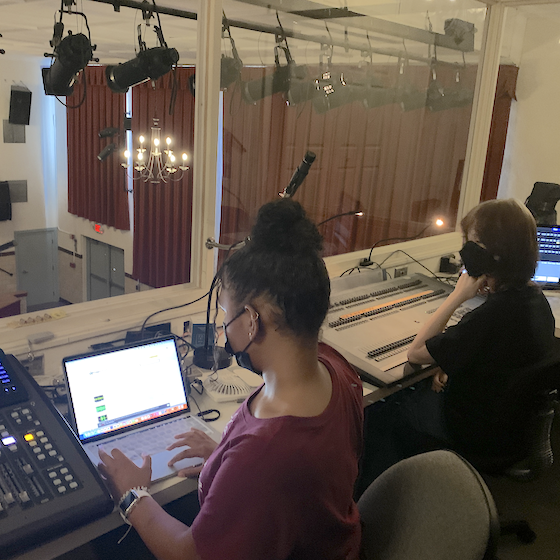
Additionally, EP’s programs are all free-or-reduced cost. Recognizing that this may not be possible for every community, we encourage folks to be mindful of ways they might be able to keep their program accessible. It’s amazing what can be done with a simple gathering space, upcycled costumes, and a group of passionate students!
And if you are an adult who is fortunate to be able to monetarily support the arts, please consider donating to youth performing arts programs because it’s clear that their results have long lasting effects on the students involved.
Photo source: EP, Gloria & Ruby (two of our youth bloggers) work in the lights and sound booth at the Carysbrook Performing Arts Center, Spring 2023.
Next Steps
I am so heartened by what our students shared about the impact that theatre had on their lives. I encourage all adults and communities to consider bringing the transformative power of theatre to their own contexts, no matter how big or small. The show can go on, and I believe we owe it to all students to give them a chance to shine – both on and off the stage.
If you’d like to stay in touch or learn more about how theatre education can impact your community, you can reach me at empoweredplayersvirginia@gmail.com. To support Empowered Players, visit our website here.

If you have any comments or questions about this post, please email Youth-Nex@virginia.edu. Please visit the Youth-Nex Homepage for up to date information about the work happening at the center.
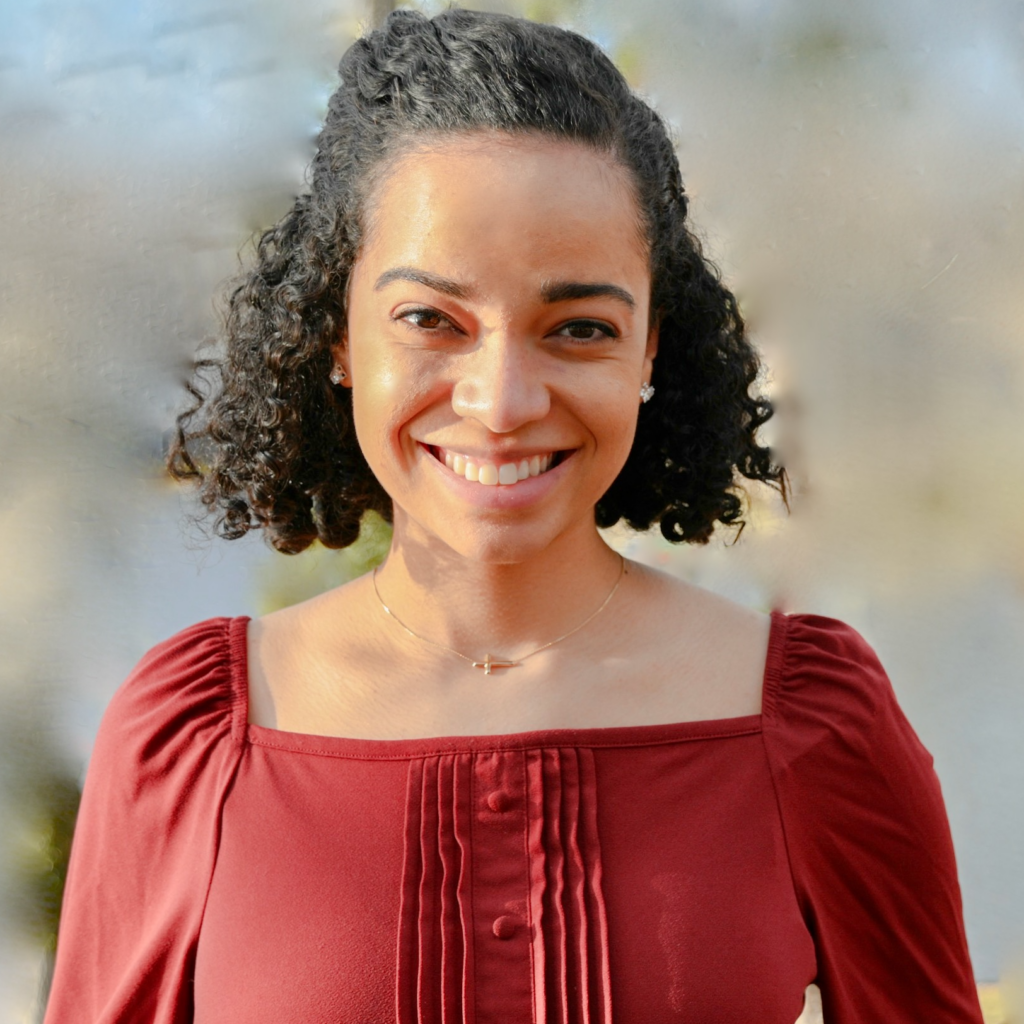
Author Bio: Jessica Harris is the Founder and Artistic Director of Empowered Players, a 501(c)3 arts education nonprofit in Fluvanna, VA, and Community Research Program Manager at the UVA Equity Center. Through EP, she directs and provides yearlong accessible arts programs for K-12 students, and her TEDx Talk titled “The Transformative Power of Theater in Rural Communities” highlights her work. Jessica holds a Master’s in Applied Development Science – Educational Psychology from the University of Virginia, where she also earned an interdisciplinary B.A in arts nonprofit management & education.